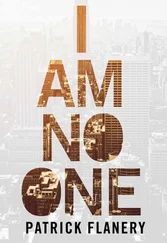Sam and Sarah’s number had been on a slip of paper taped to the refrigerator, the first on a list of emergency contacts, followed by Ellen Leroux’s doctor, colleagues at her school, a few friends, and women from the church. It was a short list. Sam was her only family, and as he looked at the other names, most of which meant little to him, he realized he was now completely alone in the world. There was no longer anyone to phone in the middle of the night, no one to go home to, no one who could be compelled under force of filiation if not of law to acknowledge a responsibility to him. Home had become a place he owned, emptied of people. The blood beat in his eardrums; to be without a home again filled Sam with a new kind of terror.
Why are there locks on the fridge and cupboards? Sarah stood in the middle of the kitchen looking hungry and scared. In his backpack Sam found a pouch containing half a dozen keys.
I don’t know which is which , he said. You’ll have to try them all. I think it’s the gold one for the fridge. Each of the cupboards has a different skeleton key .
They’re open, Sam. I just don’t understand why there are locks .
To keep your domestic from stealing food. It’s not unusual. I guess the locks on the cupboards are a little unusual, but you’d struggle to buy a fridge or freezer in this country without built-in locks on its doors. It’s just the way things are .
Was your aunt a racist?
Ellen Catharina Leroux, who only locked the refrigerator and freezer and cupboards when she went on holiday, who had a pillow in the lounge embroidered with a line of dancing Sambo figures, who had never employed a domestic because she thought it was demeaning to everyone concerned, who had started a programme tutoring township children on the weekends, would have been horrified by the suggestion that she was a racist.
On the kitchen counter were three red tins of Christmas cookies. There was a turkey in the freezer, and the pantry glowed with jars of home-made konfyt , palegreen jewels of melon rind suspended in syrup. Sam’s bedroom was already made up and in the closet he found wrapped gifts for him, as well as two small parcels for Sarah, left undisturbed by his aunt’s attackers. His grandmother’s jewellery box was still in its hiding place, the few small pieces untouched.
Sarah had a shower to cool off and Sam sat on his bed swallowing down the sobs as they came. When he heard Sarah getting out of the shower he went to the kitchen, splashed his face with cold water and dried it with a tea towel.
Even the shower door has locks inside , Sarah said, shivering now that the sun had gone down.
I never noticed .
Why would you want to lock yourself inside your shower?
In case someone breaks in. In case they get into the bathroom while you’re in the shower and you don’t know what else to do but lock yourself into an even smaller space and hope that whoever it is will just give up and go away. I don’t know. I don’t have all the answers, Sarah .
Are you okay?
I was just washing my face. I’ll make us some dinner. Sit down. Wouldn’t you like to get us a drink? There’s wine in the pantry, and whisky, unless they’ve taken it. Glasses are in the cupboard next to the sink .
Although Ellen had a panic button in the kitchen, she did not have one in her bedroom. All the locks in the world hadn’t saved her. Whoever did it had forced the back door, shot her in her bed, taken her television, stereo, microwave oven, and a watch with no significant value, fleeing before the police or the security company’s guards could arrive. On Sam’s direction the company had replaced the door before he and Sarah arrived.
The police had assured Sam they were following up leads, but he was not hopeful; it was a town with a reputation for corruption and administrative sloth and there was little expectation that the culprit or culprits would ever be caught.
She wasn’t raped , he told Sarah the next day, after coming back from identifying the body. At least there’s that. Her face is terrible. She was probably pleading for her life and then he just got tired of it and shot her .
While Sam was away, Sarah had stripped Ellen’s bed, bundling the sheets into a plastic bag whose seams strained under the pressure. What about the mattress? she asked. I don’t think the stain will come out .
The women from the church will know what to do .
If you find me the number I’ll phone them .
Sarah was better than he could have imagined. She made tea and cooked meals that comforted him with their simplicity: macaroni and cheese, spaghetti and meatballs, stew with kudu meat, an omelette and biscuits. She placed phone calls and came through with money when the accounts were not immediately transferrable to Sam. She ordered flowers for the funeral, helped choose the music, and charmed the women of the church where Ellen, although rarely a churchgoer in recent years, was still a member. She sampled food that was new to her and tried to make Sam happy without ever diminishing the solemnity of the situation. With the help of the Women’s Federation she arranged a brunch following the memorial service and helped Sam set up a fund to pay for a scholarship in Ellen’s name at the school where she’d taught. She phoned her father’s lawyers whose firm had a branch in Cape Town and within days the red tape was cleared, the accounts were in Sam’s name, and the property his to do with as he liked. Everything she did was perfectly pitched — efficient and businesslike without being unfeeling. It was a way that reminded Sam, not for the first time, of Laura.
Though grateful for everything she’d done, almost despite himself he began to resent the part Sarah was playing so effortlessly — the American saviour with a golden touch. Without thinking, he began to do little things that might alienate her, forcing her to reveal some hidden selfishness. But when he wanted to sleep alone for a night in the room that had been his since he first came to live with Ellen, Sarah made up the couch in the living room and slept there without complaint.
The police assured Sam they would follow up leads.
I spend the rest of the summer, the sweltering days of February and the cooler days of early autumn — March, April — trying to forget what Timothy told me, and what Lionel did not deny. Perhaps, I begin to feel now, my Aunt Ellen was right: it is better to forget and move on from the past and its people; we’re mistaken in thinking we know them.
During the days I spend in my cell of a university office, I’m either working on the book or preparing for teaching, though the two are symbiotic, one feeding the other. I only have two classes this term, one an honours-level course on contemporary South African literature, the other a Masters course devoted in its entirety to Clare’s books. The students work hard, they’re engaged, they tease me about my Americanized vowels and ask, as the term progresses, whether I’m getting enough sleep. They express concern for my well-being in a way that both touches and alarms me. I go to bed earlier and get up later each morning. I stop resisting the attempts by the domestic worker to do things like launder and iron my clothes. This is what we are paying her to do. It makes no sense for us to do it ourselves.
On weekends Sarah and I go to the malls, out to dinner in Illovo, on a day trip to Pretoria to see the Voortrekker Monument and the Union Buildings. One Saturday, as we’re about to leave the glitzy mall at Sandton, we overhear a child plead with her parents, ‘Do we have to go back to South Africa?’, as if the mall were not just a different kind of social space, but a separate political entity — the post-apartheid version of an independent homeland for the elite, whatever their colour.
Читать дальше












